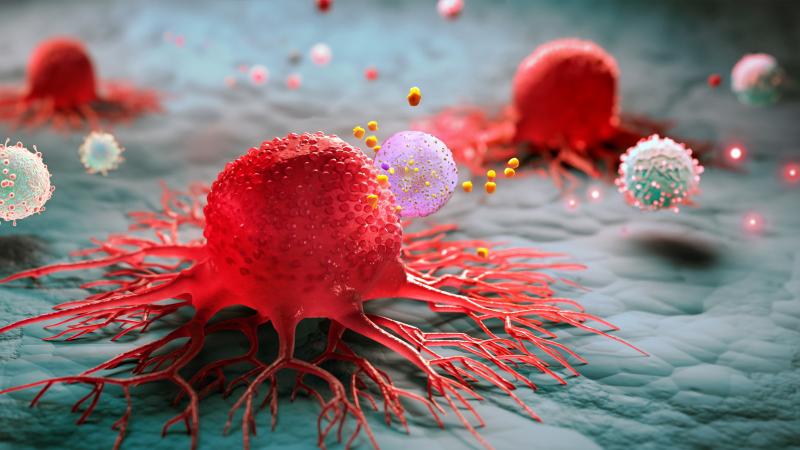How Does Cancer Kill? Understanding the Biological Mechanisms

Cancer claims millions of lives annually, but the specific ways it causes death remain poorly understood by the general public. iMedix examines the pathophysiology behind cancer mortality with clinical precision and compassionate clarity.
The 5 Primary Pathways to Cancer Mortality
Clinical Data Breakdown: Autopsy studies reveal:
- ? Organ failure: 42% of cancer deaths
- ? Hemorrhage: 18% of fatalities
- ? Infection: 25% (from immunosuppression)
- ? Cardiac complications: 8%
- ? Neurological collapse: 7%
1. Organ Failure: The Most Common Killer
| Organ System | Mechanism of Failure | Survival Timeline | Palliative Options |
|---|---|---|---|
| Liver | Metastatic replacement >70% parenchyma | Weeks to months | Paracentesis, lactulose |
| Lungs | Pleural effusions + lymphangitic spread | Days to weeks | Oxygen, thoracentesis |
| Bone Marrow | Leukemic overcrowding (>80% blasts) | Days without transfusion | Growth factors, transfusions |
2. Catastrophic Hemorrhage: When Tumors Erode Vessels
High-Risk Scenarios
- ? Esophageal varices: From liver metastases
- ? Carotid blowout: Head/neck cancers
- ? Hemoptysis: Lung tumors in major airways
- ? Intracerebral bleed: Melanoma/renal mets
Emergency Interventions
- ? Radiation therapy: For tumor bleeding
- ? Embolization: Interventional radiology
- ? Topical hemostats: For superficial wounds
- ? Factor VIIa: Refractory cases
3. Infection: The Stealth Threat
Immunosuppression Pathways:
- ? Neutropenia: ANC <500 from chemo/bone mets
- ?️ B-cell depletion: Hypogammaglobulinemia
- ? Barrier disruption: Tumor ulceration
- ? Treatment effects: Steroids, targeted therapies
Most Lethal Infections in Cancer Patients
- Pseudomonas pneumonia: 60% mortality in neutropenia
- Invasive aspergillosis: >80% fatality if disseminated
- Candida sepsis: 40% mortality even with treatment
- Toxic megacolon: From C. diff in immunocompromised
4. Metabolic Catastrophes
| Syndrome | Mechanism | Survival Untreated |
|---|---|---|
| Hypercalcemia | PTHrP secretion by tumors | Days to weeks |
| SIADH | ADH secretion by SCLC | Hours (if severe) |
| Tumor Lysis | Rapid cell death releasing contents | Hours (cardiac arrest) |
5. The Final Common Pathway: Cachexia
Cachexia Physiology
- ⚖️ Muscle wasting: TNF-α, IL-6 effects
- ? Metabolic shift: Cori cycle dominance
- ?️ Anorexia: Ghrelin resistance
- ? Treatment resistance: No benefit from nutrition
Intervention Strategies
- ? Appetite stimulants: Megestrol, cannabinoids
- ? Anti-cytokines: Experimental agents
- ?️ Physical therapy: Preserve function
- ❤️ Early palliative care: Improves outcomes
Rare But Rapid Killers
Less Common Fatal Events:
- ? Brain herniation: From untreated mets
- ? Cardiac tamponade: Pericardial mets
- ? Pulmonary embolism: Trousseau syndrome
- ? Status epilepticus: Leptomeningeal disease
The Dying Process: What to Expect
Final Days Timeline:
- Weeks before: Increasing fatigue, appetite loss
- Days before: Cognitive changes, breathing shifts
- Final 24-48h: Cheyne-Stokes respiration, cold extremities
- Moments before: Terminal apnea, peaceful appearance
How Does Cancer Kill You: The Precise Mechanisms
Direct Answer: Cancer kills you through three fundamental pathways:
- Organ Invasion: Tumors physically destroy vital structures (how lung cancer kills you by suffocation)
- Biological Sabotage: Cancer cells hijack your body's systems (how pancreatic cancer kills you via liver failure)
- Resource Starvation: Tumors drain your energy reserves (how metastatic cancer kills you through cachexia)
How Does Cancer Kill You? 5 Specific Scenarios
| How It Kills You | Biological Process | Timeframe |
|---|---|---|
| Respiratory Failure (How lung cancer kills you) |
Tumors block airways/destroy alveoli | Weeks to months |
| Liver Failure (How metastatic cancer kills you) |
>70% liver replacement → toxin buildup | Days to weeks |
| Sepsis (How blood cancers kill you) |
No white blood cells → overwhelming infection | Hours to days |
| Brain Herniation (How brain tumors kill you) |
Skull pressure > arterial pressure | Minutes to hours |
| Cardiac Tamponade (How pericardial mets kill you) |
Fluid crushes beating heart | Minutes |
How Does Cancer Kill You Slowly vs Quickly?
Chronic Killing Mechanisms
(Weeks to Years)
- ? Cachexia: How cancer kills you by wasting (20% weight loss = lethal)
- ? Bone marrow failure: How leukemia kills you gradually
- ? Neurological decline: How brain mets kill you slowly
Acute Killing Mechanisms
(Hours to Days)
- ? Hemorrhage: How stomach cancer kills you via bleeding
- ? Pulmonary embolism: How pancreatic cancer kills you suddenly
- ? Tumor lysis syndrome: How chemo can kill you rapidly
How Does Cancer Kill You? The Biochemical Answer
At molecular level, cancer kills you by:
- ⚡ ATP depletion: Tumors consume your energy reserves
- ? Enzyme disruption: Liver cancers stop detoxification
- ? Coagulation chaos: Some tumors trigger deadly clots
- ? pH imbalance: Lactic acid from tumors acidifies blood
Advances Changing Mortality Patterns
- ? Targeted therapies: Reducing organ failure deaths
- ?️ Better prophylaxis: Cutting infection mortality
- ? Interventional radiology: Controlling hemorrhages
- ⚕️ Early palliative care: Improving quality of life
Understanding these mechanisms helps patients and families make informed decisions.
— The iMedix Medical Team
Advertise on APSense
This advertising space is available.
Post Your Ad Here
Post Your Ad Here